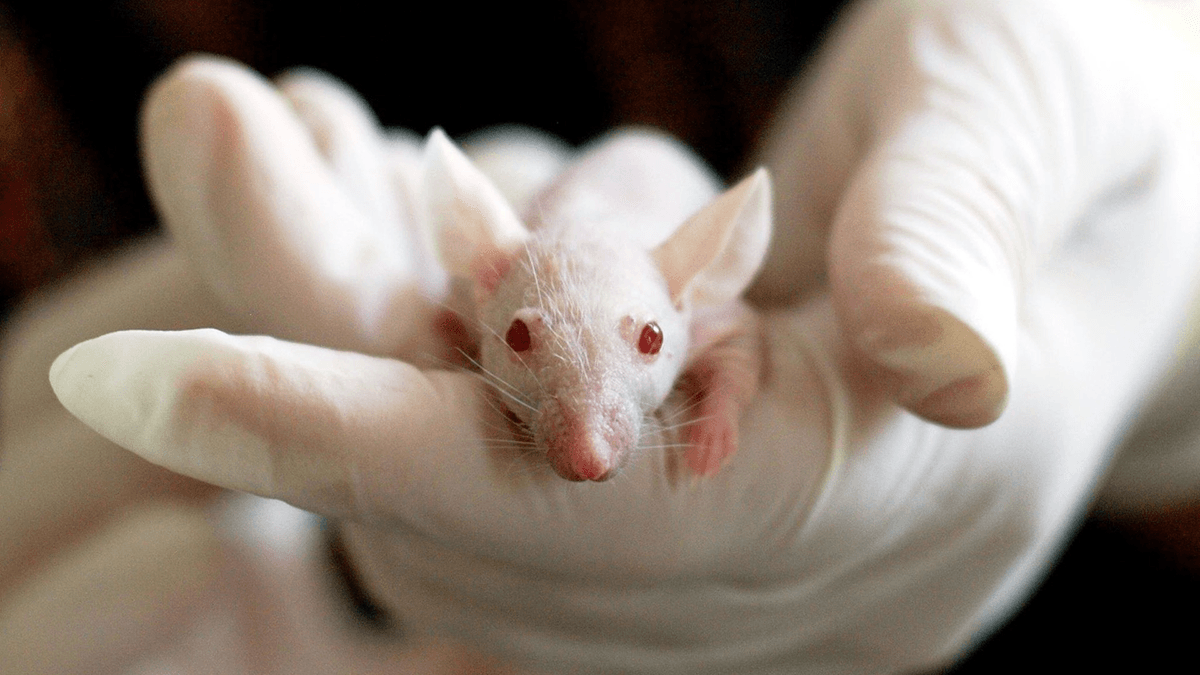Cognition and Longevity Enhanced in 10 Mouse Studies

I take antioxidant dietary supplements daily, so I was happy to accept when Thrivous founder Lincoln Cannon invited me to summarize 10 recent studies, performed by scientists at McMaster University, testing antioxidants’ beneficial effects on mice. I was eager to dig in and learn more about how antioxidants work. And besides, mice are cute. Aside from elephants, who doesn’t love mice?
The mice in most of these studies have been genetically modified to produce more growth hormone, which causes them to age at an accelerated rate. This makes them useful as accelerated experimental models of aging and as test subjects for anti-aging treatments. For instance, modified mice have shorter life spans and experience more rapid cognitive decline in old age than unmodified mice.
The cause of the modified mice’s rapid decline seems to be higher production of oxygen and nitrogen free radicals, which results in cellular damage and chronic inflammation. Free radicals also play a role in human aging and cognitive decline, so halting the damage caused by free radicals could have huge implications for human medicine.
One promising approach is preventive antioxidant supplementation. In a 2003 study, researchers gave the modified mice a complex anti-aging supplement containing 31 ingredients, including flaxseed oil, Ginkgo biloba, and L-glutathione. The supplement completely halted age-related cognitive decline in the modified mice. In fact, older mice in the treatment group actually exhibited faster learning than young adult mice!
Researchers replicated this result in a 2011 study, and found that supplemented elderly mice exhibited greater brain mass and increased mitochrondrial activity compared to unsupplemented mice. A 2016 replication showed that, whereas unsupplemented mice lost 50% of their midbrain cells as they aged, the antioxidant supplement completely prevented this brain cell loss. It also slowed degradation of the mice’s vision and their sense of smell by preventing cell loss in noses and eyes. A 2018 replication found that the supplement prevented impairments of working memory and spatial learning in elderly mice, but did not prevent impairments of mood or object recognition.
A 2005 follow-up to the original study found that, in addition to slowing age-related cognitive decline, the supplement also extended the life span of modified mice by 28% and of unmodified mice by 11%. This suggests that antioxidant supplements may have broader anti-aging applications than simply staving off dementia. In particular, the supplement seemed to slow age-related degradation of livers and kidneys.
Another follow-up study in 2008 found that the supplement protected male mice against cell death induced by radiation -- female mice proved naturally radiation-resistant and gained no additional resistance from the supplement. A 2014 study found that the supplement reduced onset of tumors in older mice by 30% and eliminated tumor metastasis in the treatment group.
In addition to cognition and longevity, a reformulated version of the antioxidant supplement also improved elderly mice’s motor function and mobility in a 2010 study. The chemical mechanisms included preservation of Neuropeptide Y and of cellular mitochondria, which normally degrade with age.
A 2015 study investigated the usefulness of antioxidant supplementation and of physical exercise for improving mood in chronically stressed mice. The study found that supplements and exercise improved the mice’s mood only when supplements and exercise were administered in combination with each other, not when each was administered alone. Examination of the mice’s brains showed that chronic stress had caused atrophy in the untreated mice’s hippocampi, whereas mice in the treatment group exhibited better hippocampal function.
Critical to the success of these studies may be that they involved a cocktail of many different antioxidants. Individual antioxidants can sometimes have pro-oxidant effects when taken in isolation, which may account for the often-disappointing results of studies that look at only one or a few antioxidant chemicals. Using a broad spectrum of different antioxidants may help average out these pro-oxidant risks. It may also simultaneously attack several different mechanisms of aging and disease, which prevents any single mechanism from acting as a limiting factor.
It’s important to use caution when making decisions about human health based on animal studies. Mice aren’t humans, and what’s toxic to a human might not be toxic to a mouse. Make sure to investigate possible risks and side-effects before taking any supplement. But the chemical mechanisms of aging are similar in mice and humans, so antioxidants that have been deemed safe for human consumption may offer humans similar (if less dramatic) benefits. The take-away from the mouse studies is that using multiple antioxidants in combination with each other and in combination with physical exercise may maximize benefit.
10 Mouse Studies
- A dietary supplement abolishes age-related cognitive decline in transgenic mice expressing elevated free radical processes (2003)
- A complex dietary supplement extends longevity of mice (2005)
- Radiation-induced apoptosis in mouse lymphocytes is modified by a complex dietary supplement: the effect of genotype and gender (2008)
- Dietary amelioration of locomotor, neurotransmitter and mitochondrial aging (2010)
- A complex dietary supplement augments spatial learning, brain mass, and mitochondrial electron transport chain activity in aging mice (2011)
- A complex dietary supplement modulates nitrative stress in normal mice and in a new mouse model of nitrative stress and cognitive aging (2012)
- Impact of a complex nutraceutical supplement on primary tumour formation and metastasis in Trp53+/- cancer-prone mice (2014)
- Synergistic effects of diet and exercise on hippocampal function in chronically stressed mice (2015)
- A multi-ingredient dietary supplement abolishes large-scale brain cell loss, improves sensory function, and prevents neuronal atrophy in aging mice (2016)
- Early Intervention with a Multi-Ingredient Dietary Supplement Improves Mood and Spatial Memory in a Triple Transgenic Mouse Model of Alzheimer's Disease (2018)
More Articles
Read more articles at Thrivous, the human enhancement company. You can browse recent articles in Thrivous Views. See other Geroprotectors or Nootropics articles. Or check out an article below.
-
Derived Human Dosing of Mouse Enhancement Supplement
In a series of 10 clinical studies, scientists at McMaster University have repeatedly demonstrated that a multi-ingredient dietary supplement can ...
-
Virtual Nature Relieves Indoor Isolation
Scientists at University of Exeter have found that watching nature on media can uplift people's moods, reduce negative emotions, and ...


